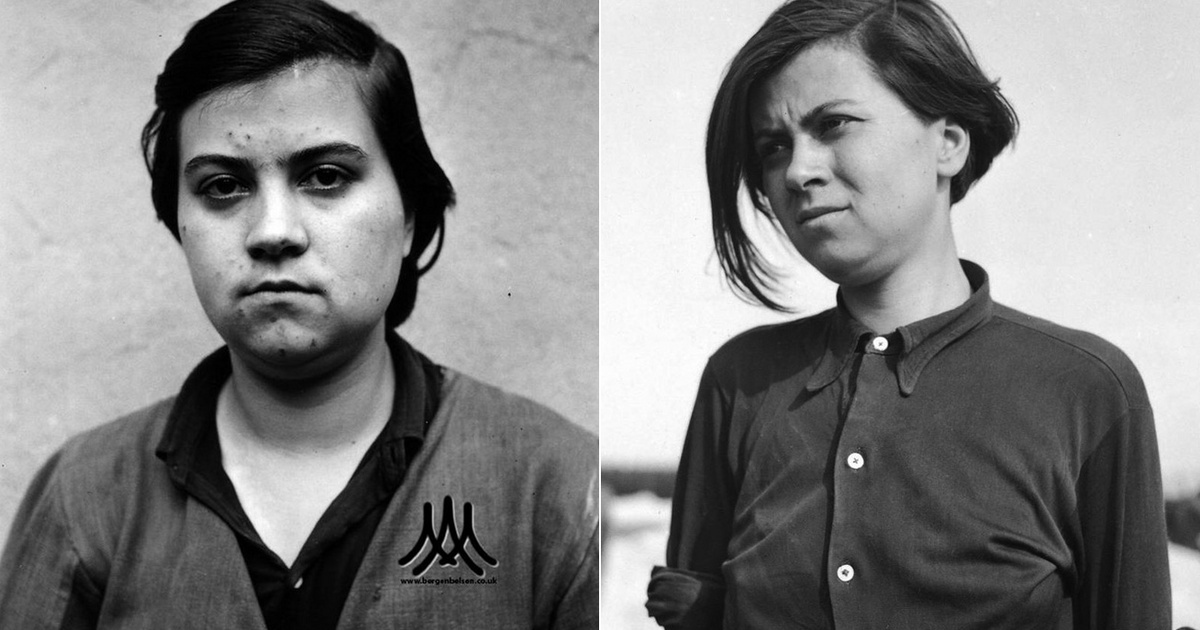
Who was Anneliese Kohlmann? Born in 1921, Anneliese Kohlmann was a German SS guard during World War II. She worked at several concentration camps, including Neuengamme and Bergen-Belsen. Known for her brutal treatment of prisoners, she was later captured by British forces. In 1945, Kohlmann was tried for war crimes and sentenced to two years in prison. Her story is a stark reminder of the atrocities committed during the Holocaust. Despite her relatively short sentence, her actions left a lasting impact on survivors and history. Understanding her role helps us grasp the human capacity for cruelty and the importance of remembering the past.
Key Takeaways:
- Anneliese Kohlmann was a German SS guard known for her cruelty during World War II. Her trial and conviction serve as a reminder of the atrocities committed during the Holocaust.
- Research into Kohlmann's life continues to provide valuable insights into the Holocaust, ensuring that the atrocities of the past are not forgotten.
Who Was Anneliese Kohlmann?
Anneliese Kohlmann was a German SS guard during World War II. Her life and actions have been the subject of much scrutiny and historical analysis.
-
Born on March 1, 1921, in Hamburg, Germany, she grew up during a tumultuous period in German history.
-
She joined the SS in 1944, becoming a guard at the Neuengamme concentration camp.
-
Kohlmann was one of the few female guards at the camp, a role that placed her in direct contact with prisoners.
-
She was known for her cruelty, often beating prisoners and participating in other forms of abuse.
Role in Neuengamme Concentration Camp
Her role at Neuengamme was significant, and her actions there have been well-documented.
-
Neuengamme was a labor camp where prisoners were forced to work under brutal conditions.
-
Kohlmann was responsible for overseeing female prisoners, many of whom were subjected to harsh treatment.
-
She was involved in the selection process, deciding which prisoners were fit for work and which were to be sent to their deaths.
-
Her actions contributed to the suffering and deaths of many prisoners.
Post-War Trial and Conviction
After the war, Kohlmann faced justice for her actions during the Holocaust.
-
She was captured by British forces in 1945.
-
Kohlmann was tried at the Neuengamme Trials, a series of military tribunals held to prosecute war criminals.
-
During her trial, numerous witnesses testified about her brutal behavior.
-
She was convicted of war crimes and sentenced to two years in prison.
Life After Prison
Kohlmann's life after her release from prison is less well-known but still holds some interesting facts.
-
She was released from prison in 1948 after serving her sentence.
-
After her release, she lived a relatively quiet life, avoiding public attention.
-
She never publicly expressed remorse for her actions during the war.
-
Kohlmann died in 1977, leaving behind a legacy of cruelty and suffering.
Legacy and Historical Impact
The legacy of Anneliese Kohlmann is a dark chapter in history, but it serves as a reminder of the atrocities committed during the Holocaust.
-
Her actions are often cited in discussions about the role of women in the Nazi regime.
-
Kohlmann's story is a stark reminder of the capacity for cruelty in ordinary people.
-
Her trial and conviction were part of a broader effort to bring Nazi war criminals to justice.
-
The Neuengamme Trials helped to establish legal precedents for prosecuting war crimes.
Personal Life and Background
Understanding Kohlmann's personal life provides some context for her actions, though it does not excuse them.
-
She came from a working-class family in Hamburg.
-
Before joining the SS, she worked as a streetcar conductor.
-
Her decision to join the SS was likely influenced by the economic and social pressures of the time.
-
Kohlmann was unmarried and had no children.
Psychological Profile
Examining the psychological aspects of Kohlmann's behavior can offer insights into her actions.
-
Some historians believe she exhibited traits of sadism and a lack of empathy.
-
Her behavior may have been influenced by the authoritarian environment of the SS.
-
Kohlmann's actions reflect the dehumanizing effects of the Nazi ideology.
-
She was part of a system that encouraged and rewarded brutality.
Comparisons with Other Female Guards
Kohlmann was not the only female guard in the Nazi concentration camps, and comparisons with others can be illuminating.
-
Like Irma Grese and Ilse Koch, she was known for her cruelty.
-
Female guards often faced less scrutiny than their male counterparts, but their actions were no less brutal.
-
The role of women in the Nazi regime is a complex and often overlooked aspect of history.
Historical Documentation and Research
Research into Kohlmann's life and actions continues to this day, providing valuable insights into the Holocaust.
-
Numerous books and articles have been written about her, contributing to our understanding of the period.
-
Survivor testimonies have been crucial in documenting her actions.
-
Historical archives contain extensive records of her trial and conviction.
-
Ongoing research helps to ensure that the atrocities of the Holocaust are not forgotten.
Final Glimpse at Anneliese Kohlmann
Anneliese Kohlmann's life offers a stark reminder of the complexities of human behavior during one of history's darkest periods. As a guard at the Neugraben subcamp, her actions contributed to the suffering of many. Yet, her post-war trial and subsequent imprisonment highlight the pursuit of justice, even in the face of overwhelming atrocities. Kohlmann's story isn't just about her deeds but also about the broader context of World War II and the Holocaust. Understanding her role helps us grasp the immense impact of individual actions within larger historical events. By learning about figures like Kohlmann, we ensure that the lessons of the past remain relevant, urging us to strive for a more just and compassionate world. Remembering these facts isn't just about history; it's about shaping a better future.
Frequently Asked Questions
Was this page helpful?
Our commitment to delivering trustworthy and engaging content is at the heart of what we do. Each fact on our site is contributed by real users like you, bringing a wealth of diverse insights and information. To ensure the highest standards of accuracy and reliability, our dedicated editors meticulously review each submission. This process guarantees that the facts we share are not only fascinating but also credible. Trust in our commitment to quality and authenticity as you explore and learn with us.


